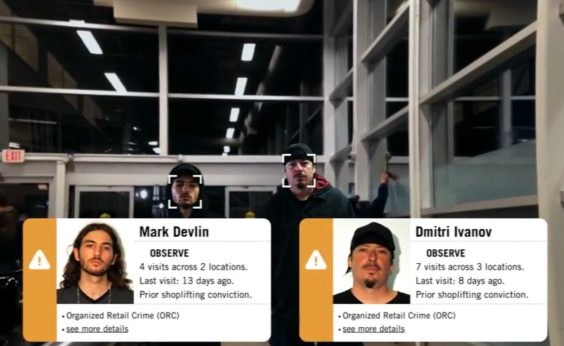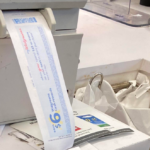
When it comes to coupon fraudsters, stores often don’t know what hit them until the fraudsters are long gone. Store staffers can scan through surveillance video to look for the culprits. By then, though, it’s too late to catch them.
But now, technology can help stop fraudsters in their tracks, and force them to face the consequences. That’s good news for honest shoppers – just as long as you don’t mind being watched, and giving up some of your privacy in the process.
A company called FaceFirst has announced a new suite of facial recognition technology products that aim to help stop shoplifting and return fraud – and could help stop coupon fraudsters as well.
FaceFirst’s Sentinel-IQ “alerts retailers the moment known dishonest customers enter the premises,” FaceFirst said in announcing the product’s official launch. Stores that use the system can upload photos of known shoplifters or fraudsters. FaceFirst’s cameras will then scan the face of every customer as they enter the store, and alert management if they find a match.
Fraudsters are often savvy enough not to visit the very same store that they just ripped off. But they know which chain stores have the most vulnerable checkout systems, for example, or the most lenient policies that they can take advantage of. So many serial fraudsters have been known to travel the region, or even the country, hitting up different stores in the same chain.
“About one in five shoplifters hit three or more retail stores within a single month,” said FaceFirst CEO Peter Trepp, “and it’s not uncommon for shoplifters to strike two retail locations within minutes of each other.”
So different stores in the same chain can share analytics with each other. That way, when one location realizes it’s been defrauded, it can alert other stores in the same chain to be on watch for the suspected fraudster if they come through their doors next.
A companion FaceFirst product called Fraud-IQ scans the faces of customers and watches for those who are making returns. If a customer tries to make a return and the system flags them as having entered the store empty-handed, it alerts management to double-check that the customer didn’t simply grab a product off the shelf in order to pretend to return it.
“Retailers are under assault from organized retail criminals and other dishonest customers,” said Trepp. “Fraud-IQ will put a significant dent in a massive industry problem.”
The National Retail Federation estimates that retailers lose $48.9 billion a year to theft. FaceFirst says its technology can help reduce those losses by an average of 34%.
But at what cost to the rest of us?
A recent blog post by the ACLU raises concerns about facial recognition technology. We’re all familiar, and maybe even comfortable, with surveillance cameras that monitor for suspicious activity. But what about cameras that can recognize your face?
“Most customers do not think that they are being subject to a perpetual lineup, scrutinized by face recognition technology to see if they resemble anyone that a company security service has decided to put on a watch list,” the post reads. “They do not expect that they are subject to the risk of being misidentified as someone in a database of suspected criminals.”
It’s not only the technology that concerns the ACLU, but the transparency – or lack thereof. “Customers should not have their faces scanned without their permission — and they certainly shouldn’t be scanned without their knowledge. Companies using face recognition should inform their customers,” the group argues.
For now, stores could be scanning your face and storing your image, and you may never know. But if it helps to combat theft, fraud and coupon abuse – stores, shoppers and civil libertarians will have to decide whether it’s worth it.
Image source: FaceFirst










